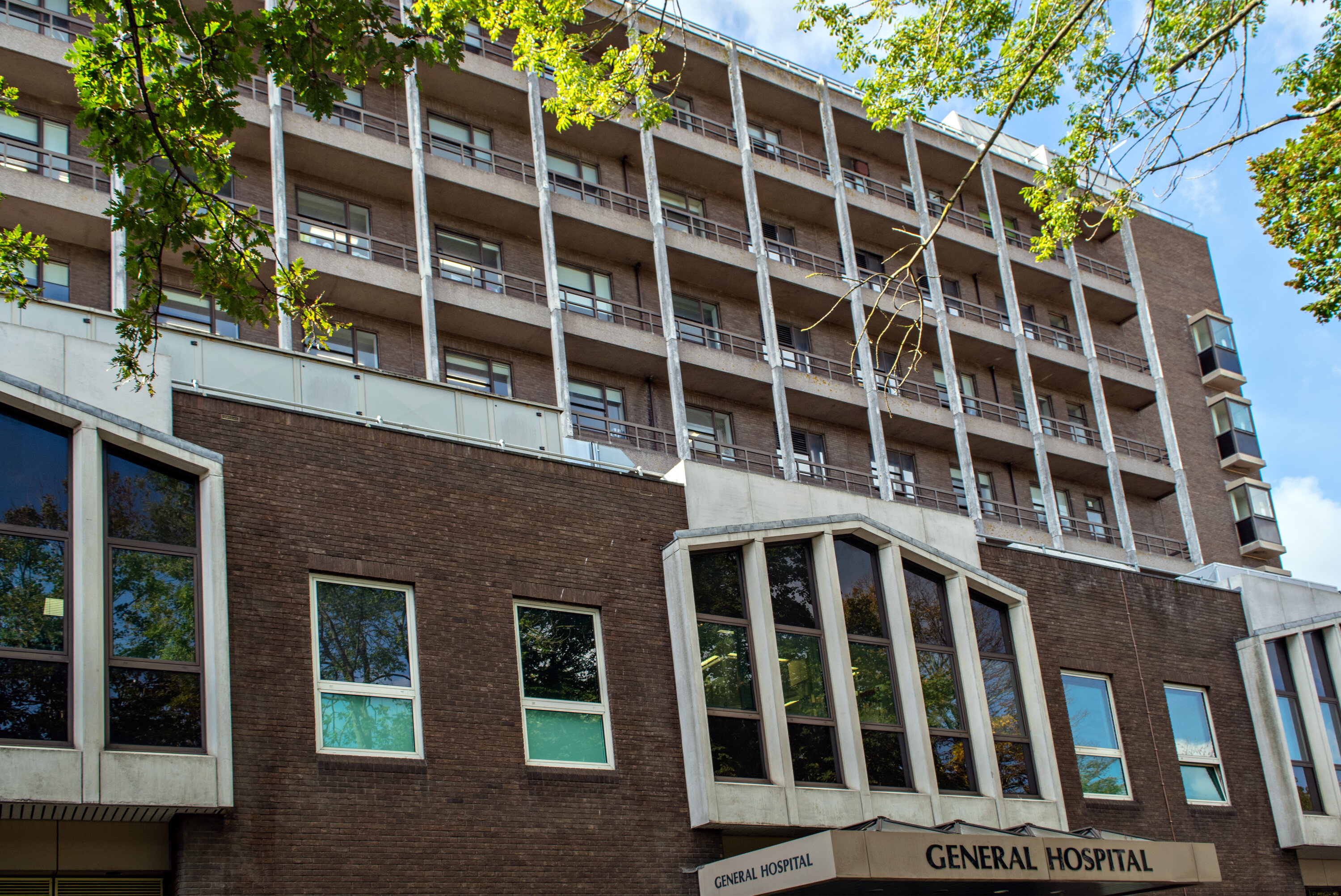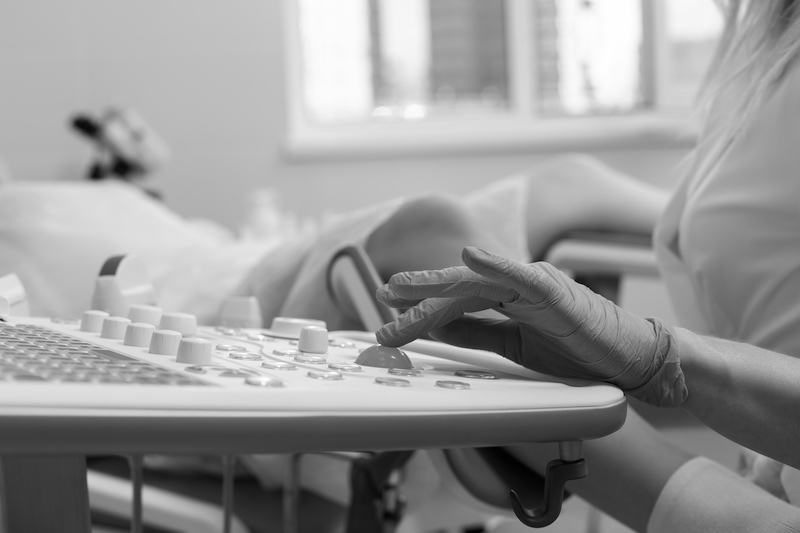


In 1991, a dedicated gynaecology ward was introduced in Jersey to ensure that those who required hospitalisation for issues such as abortions and miscarriages were cared for with the required sensitivity and privacy... But now, almost 35 years later, the island no longer has this ward. So, what happened?
A local Consultant Gynaecologist is calling for the reinstatement of what he describes as Jersey's "lost" gynaecology ward to "offer women a dedicated area to care for them in times of trouble".
It comes as the results of a survey which is set to inform potential changes to the island's abortion laws were revealed earlier this week.
The Government said that the feedback would be used to draft an updated version of the Termination of Pregnancy (Jersey) 1997 Law.
Although the main aim of the consultation was to gather views on the current law and inform potential changes, the report on the responses revealed many issues which sit outside of legislation.
One of the key concerns raised through patient testimonies was the lack of dignity throughout the process – particularly in relation to the absence of a dedicated gynaecology ward in the island.
Respondents raised concerns about the lack of privacy afforded to those having abortions in hospital.
“It didn’t feel private or like a protected space at all,” said one islander.

Pictured: Jersey does not have a dedicated gynaecology ward so abortion patients who require hospital treatment are admitted to the surgical floor.
Jersey no longer has a dedicated gynaecology ward and abortion patients who require hospital treatment are therefore admitted to the surgical floor.
There are very few single rooms available so, more often than not, those having terminations would be on a general ward with other patients.
This also applies to islanders experiencing miscarriages.
General surgical wards are not staffed by specialist gynaecology nurses.
Neil MacLachlan – who was a Consultant Obstetrician-Gynecologist for the States of Jersey for over 30 years – said: "I feel strongly that Jersey deserves to have a dedicated ward to treat women in a sensitive manner by staff who have chosen gynaecology as their specialism."
Due to the lack of dedicated gynaecology ward, he explained that if a woman is miscarrying and if she requires admission, then that will be on a female surgical ward – where "staff work hard to attempt to provide sensitive care in a suboptimal environment".
Pictured: Mr Neil MacLachlan MBE FRCOG is a Consultant Gynaecologist at The Lido Women’s Health Hub.
Mr MacLachlan said: "Being on a surgical ward is just so wrong and unfair on everyone.
"It may help solve the bed situation, but we should be putting the patient’s welfare at the centre of any decision making and overturn this expedient practice.
"Is it any wonder that we struggle to recruit and retain staff when we don’t even have our own dedicated gynaecology ward?"
The Consultant Gynaecologist explained that the island is "back to where we were in 1990" when those who required hospitalisation for gynaecological issues were admitted to a general female surgical ward.
"A woman going through a painful and upsetting miscarriage could be in a bed next to another having her gall bladder out," he explained.
"This created problems for patients and staff alike, and it was clear that for those unfortunate women who needed more privacy and sensitive nursing, a dedicated ward was important."
Therefore, in 1991, Rayner Ward became the island's new dedicated gynaecology ward.

Pictured: A dedicated gynaecology ward was introduced in Jersey in 1991 to provide privacy and specialised care to those experiencing abortions, miscarriages and other gynaecological issues.
Mr MacLachlan said: "Rayner Ward became the centre for women’s secondary health care with its own dedicated specialist sister in charge and a motivated, and usually very happy, workforce.
"Indeed, for a time, Jersey led the way by integrating an out-patient with an in-patient service, using the same staff, which provided excellent continuity of care and was popular with staff and patients alike."
During this period the Obstetrics and Gynaecology department were inspected every five years by senior personnel from the Royal College of Obstetricians and Gynaecology (RCOG), to ensure standards of care were being met.
"These visits went a long way to ensure that Jersey provided a good safe level of care and that women across all ages were well cared for," explained Mr MacLachlan.
A junior doctor teaching program was developed where doctors would rotate from Jersey to Southampton as part of their training, and many nurses developed specialised skills in areas such as oncology, colposcopy, and infertility.
However, this all changed in the late 1990s and early 2000s when the Health department was encouraged to make cuts – and the island's dedicated gynaecology ward was one of the most significant victims.
Shortly before the pandemic, Rayner Ward was merged with Portelet Ward to become the 'Surgical Floor' – a 26-bed general surgery ward treating patients across a range of specialities, including gastrointestinal, dental, urology, breast, maxillofacial, gynaecology, and ear, nose and throat.

Pictured: Rayner Ward was merged with Portelet Ward to become the 'Surgical Floor', a 26-bed general surgery ward.
"It was our management team who stopped Rayner Ward from being a gynaecology ward, not the staff," explained Mr MacLachlan.
"Whilst we appreciate a considerable amount of gynaecology care is carried out in the day care unit, there is still an important requirement to offer women a dedicated area to care for them in times of trouble, for example, when miscarrying their pregnancy."
The Consultant Gynaecologist is calling for the reinstatement of a dedicated gynaecology ward.
"It is crucial that women have free access to termination and that it should be performed in the safest way possible," said Mr MacLachlan.
"Whilst termination can theoretically take place at home in early pregnancy [before nine weeks], beyond this gestation it should take place in a clinic where there are suitable amenities such as an operating theatre staffed by people who have no objections to the procedures.
"However, not only has Jersey lost its dedicated gynaecology ward, but access to the operating theatre can be difficult because of the pressures on operating theatre space by various specialties."
Following the consultation in which some islanders raised concerns about the hospital set-up and process, Assistant Minister for Health and Social Services, Deputy Andy Howell, thanked everyone involved for their feedback.
She assured that the feedback "will help inform the future of this very important issue.”
Updates to the law itself will be drafted and are currently expected to be voted on by States Members before the end of the year.
IN NUMBERS: What do islanders think about Jersey's abortion laws?
Comments
Comments on this story express the views of the commentator only, not Bailiwick Publishing. We are unable to guarantee the accuracy of any of those comments.